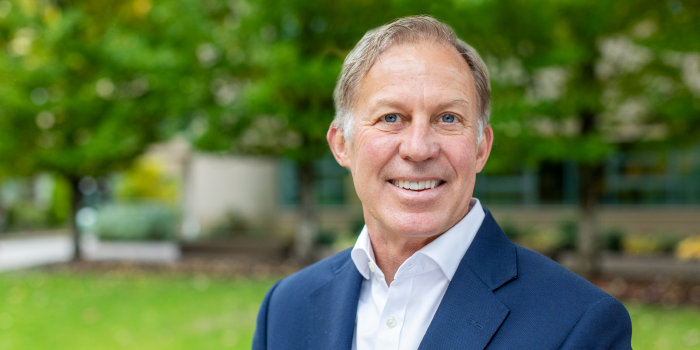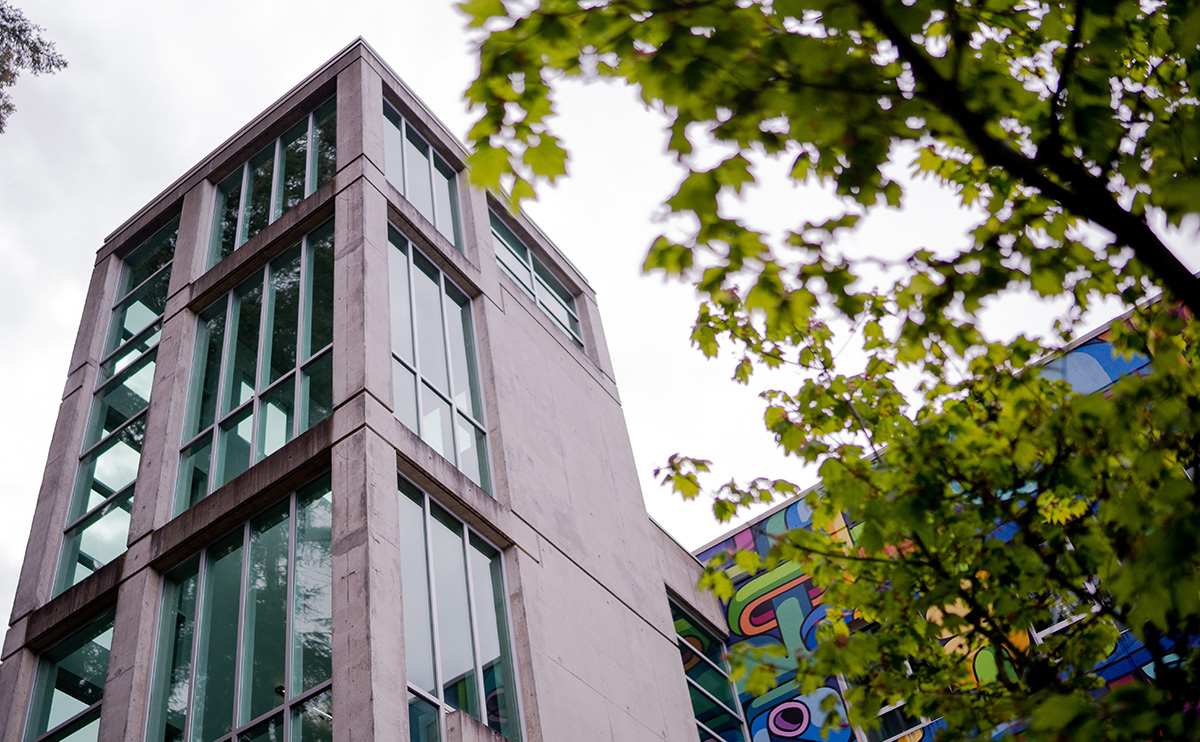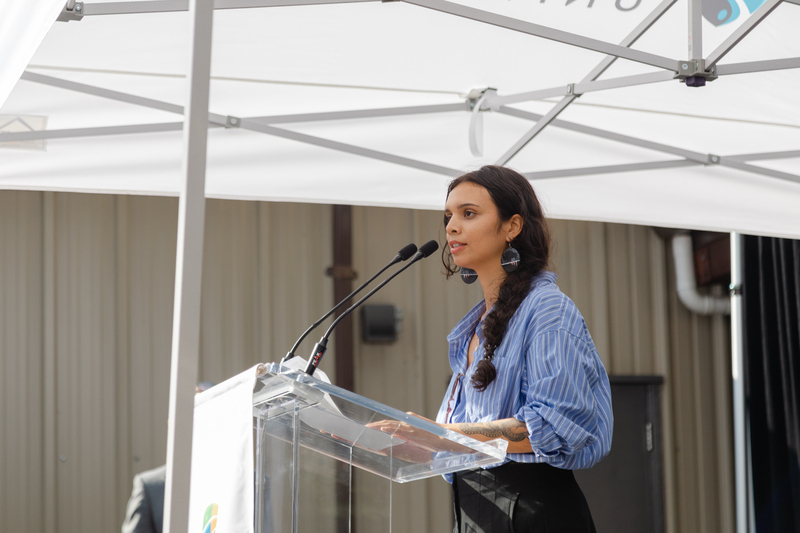This is a bimonthly newsletter featuring community updates from Capilano University President and Vice-Chancellor Paul Dangerfield.

Your thoughts and feedback are welcome: president@capilanou.ca
October 2022
I’m one of many people who cross a bridge to get to Capilano University. I come to campus by bike—a 30 km commute that is actually faster than taking a car—and daily confront the realities of our flawed transportation systems: roads clogged by gas-powered vehicles carrying a single occupant; overcrowded buses that frequently pass by waiting passengers; and inadequate infrastructure to accommodate alternate modes of transportation such as EVs, scooters and walking.
The transportation dilemma
The ease and efficiency of our transportation networks has a direct and undeniable effect on economic prosperity and quality of life in our communities. As people move further afield in search of affordable housing, they are facing arduous commutes to work and school that rob them of time, money and mental health. More than once I’ve heard students tell me that even if they get on the very first bus from home in the morning, they simply can’t get to campus in time for their first class!
In a modern country like Canada, we shouldn’t accept that transportation continues to be a barrier to education and employment; I think we’ve just put it in the “too-hard” box. But for the sake of our planet—not to mention our students and communities—it’s time to push harder to improve transportation to, from and within the North Shore. We can’t wait.
Solutions that can make a difference
At CapU we are making it easier to move around, with an established carpool program, new EV charging stations, dedicated Evo CarShare stations, bike storage facilities, and access to Lime Bikes, a North Shore all-electric bike share program. But these are small steps and bigger change is urgently needed.
To that end, I am heartened by the efforts of North Shore Connects—a partnership between the District of West Vancouver, Sḵwx̱wú7mesh Úxwumixw (Squamish Nation), the City of North Vancouver, District of North Vancouver and səlilwətaɬ (Tsleil-Waututh Nation)—which is working to reduce congestion and strengthen regional connections “to help everyone spend more time living, and less time commuting.”
And at a recent meeting of the TransLink Mayors’ Council, I spoke in support of the proposed Transport 2050 regional transportation strategy, which proposes practical multi-modal solutions including doubling bus service over the next 10 years, expanding RapidBus and HandyDART services, extending walking and biking infrastructure, and improving SeaBus, SkyTrain and West Coast Express.
Advocating for improved transportation for students
With municipal elections on the horizon in October, I urge eligible voters to learn more about their candidates’ commitment to improving transportation on the North Shore and across the Lower Mainland. It takes vision and courage to make these expensive decisions, but the consequences of delaying will only increase over time. Efficient transportation has always been key to liveable cities; today, it is increasingly essential to a liveable planet.
I want to leave the last word to Aryanna Chartrand, a student from Manitoba who is in her final year of an Early Childhood Education degree at CapU. She is a passionate advocate for improved transportation and accessibility for post-secondary students. I deeply appreciate her willingness to work for improvements that she herself may never directly benefit from—it is precisely that kind of long-view thinking that will help us all get where we need to go.
Safe travels,
Paul
Aryanna Chartrand, VP External, Capilano Students' Union, currently completing a Bachelor in Early Childhood Education
“Our job is to reduce barriers to education—and if you can’t even get to campus, that’s a barrier we need to do something about!”
“This past year, we have been advocating for renewal of pre-pandemic bus service levels—things need to be readjusted so buses aren’t so packed. The UPASS has definitely helped encourage public transit use as a lifestyle, but until we make transit more efficient, people will rely on cars. And in the face of a climate crisis, there can be mental health implications for people who are forced to rely on less sustainable choices. The CSU regularly hosts Coffee with Commuters and we share that feedback with decision-makers: the R2 RapidBus from Phibbs Exchange to Park Royal and the shuttle from Phibbs to the main campus are a direct result of our advocacy. We have to keep working to make sure students can get to campus quickly, safely and with as little stress as possible. These changes benefit everyone.”

